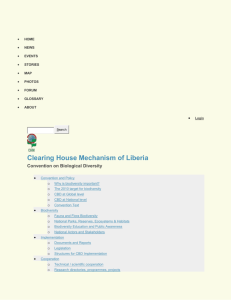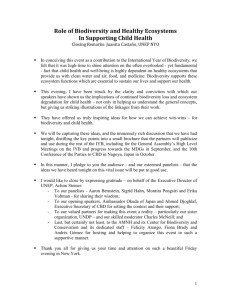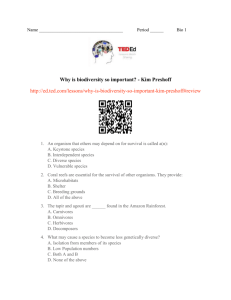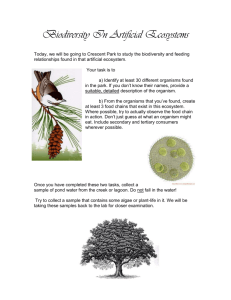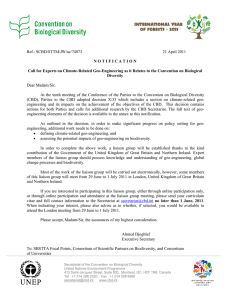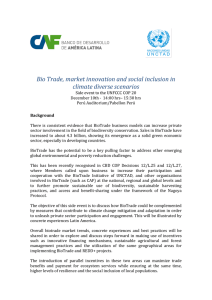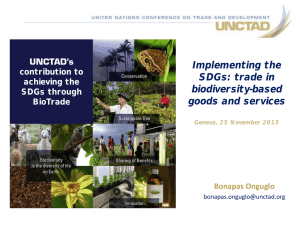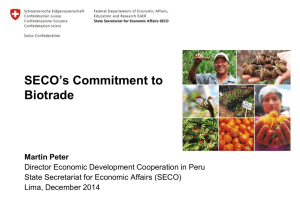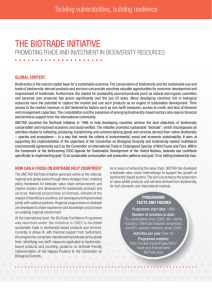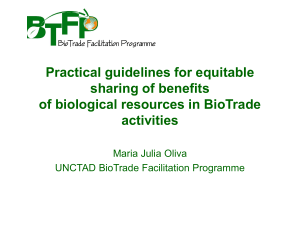Economics, Trade and Incentive Measures
advertisement
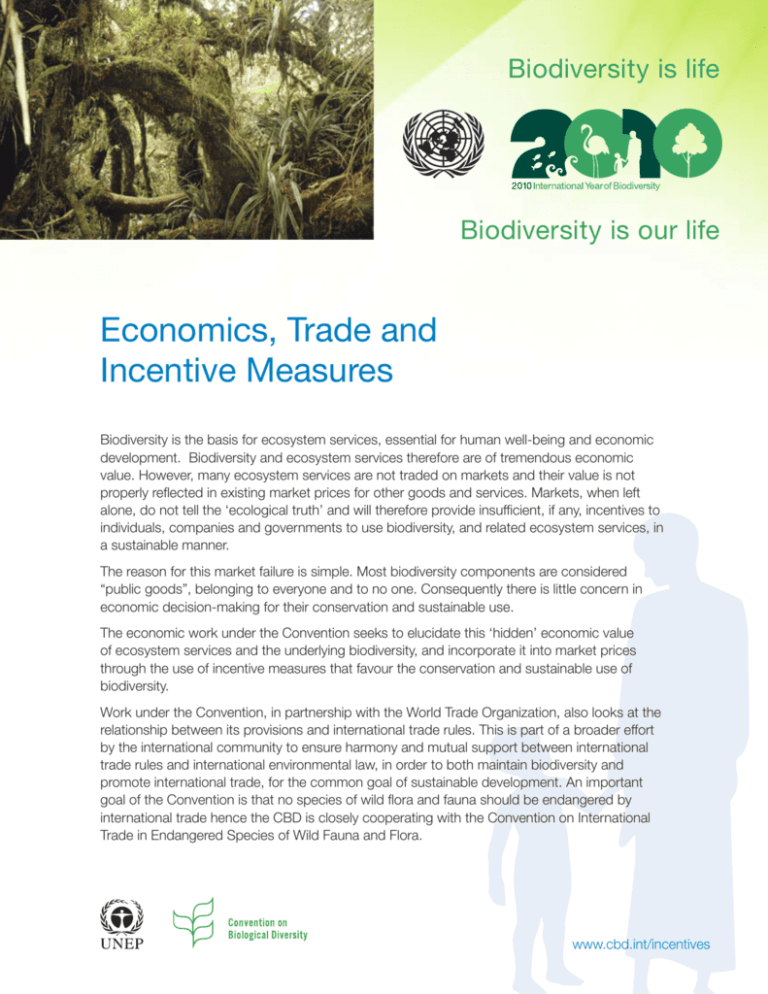
Biodiversity is life Biodiversity is our life Economics, Trade and Incentive Measures Biodiversity is the basis for ecosystem services, essential for human well-being and economic development. Biodiversity and ecosystem services therefore are of tremendous economic value. However, many ecosystem services are not traded on markets and their value is not properly reflected in existing market prices for other goods and services. Markets, when left alone, do not tell the ‘ecological truth’ and will therefore provide insufficient, if any, incentives to individuals, companies and governments to use biodiversity, and related ecosystem services, in a sustainable manner. The reason for this market failure is simple. Most biodiversity components are considered “public goods”, belonging to everyone and to no one. Consequently there is little concern in economic decision-making for their conservation and sustainable use. The economic work under the Convention seeks to elucidate this ‘hidden’ economic value of ecosystem services and the underlying biodiversity, and incorporate it into market prices through the use of incentive measures that favour the conservation and sustainable use of biodiversity. Work under the Convention, in partnership with the World Trade Organization, also looks at the relationship between its provisions and international trade rules. This is part of a broader effort by the international community to ensure harmony and mutual support between international trade rules and international environmental law, in order to both maintain biodiversity and promote international trade, for the common goal of sustainable development. An important goal of the Convention is that no species of wild flora and fauna should be endangered by international trade hence the CBD is closely cooperating with the Convention on International Trade in Endangered Species of Wild Fauna and Flora. www.cbd.int/incentives Fast Facts nn The Clearing-House Mechanism (CHM) of the Convention features a database on incentive measures, which facilitates the exchange of experiences among governments and organizations in the design and application of incentive measures nn Positive incentive measures are economic or legal measures that encourage beneficial activities, such as payments for organic farming, agricultural land set-aside schemes, and the promotion and commercialization of biodiversity-based goods which are produced in a sustainable manner (‘biotrade’), through, for example, certification and eco-labeling nn Negative incentive measures (or ‘disincentives’) aim to discourage harmful or unsustainable activities through user fees, pollution taxes etc. nn The Convention addresses policies or practices that generate “perverse” incentives which accelerate biodiversity loss, for example, public subsidies that support unsustainable farming, forestry or fishery. The CBD encourages policymakers to identify such perverse incentives and remove them or mitigate their adverse effects on biodiversity. Learn More The economic work under the Convention n www.cbd.int/incentives The study on the economics of ecosystems and biodiversity—one of the three pillars of UNEP’s Green Economy Initiative (GEI) n www.unep.org/greeneconomy n www.teebweb.org The economics of biodiversity n www.biodiversityeconomics.org Clearing-House Mechanism n www.cbd.int/chm Biotrade Initiative of the United Nations Conference on Trade and Development (UNCTAD) n www.biotrade.org World Trade Organization (WTO) n www.wto.org Convention on International Trade in Endangered Species of Wild Fauna and Flora (CITES) n www.cites.org Secretariat of the Convention on Biological Diversity 413, Saint Jacques Street, suite 800 Montreal, Quebec, H2Y 1N9 Canada Tel.: +1 514 288 2220 Fax: +1 514 288 6588 iyb2010@cbd.int www.cbd.int/incentives
